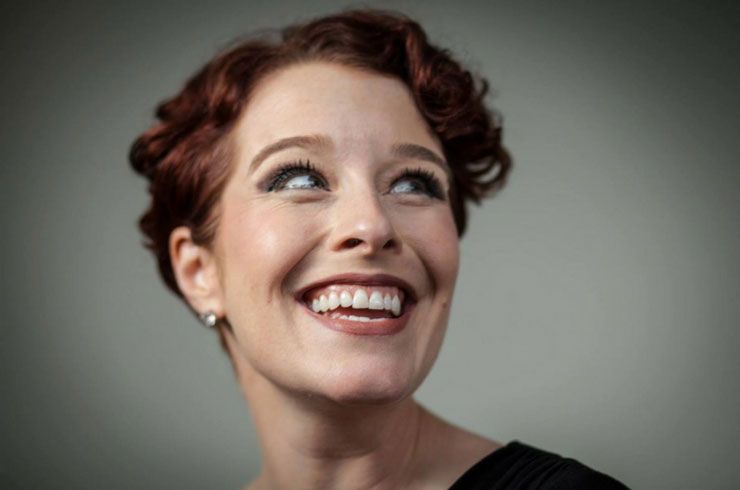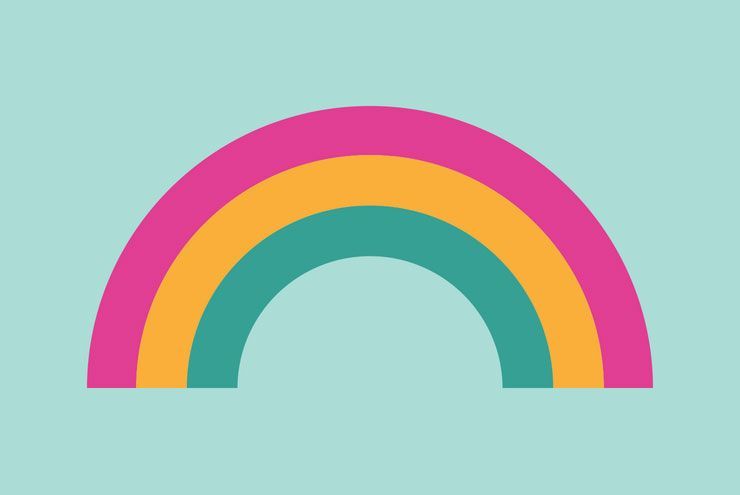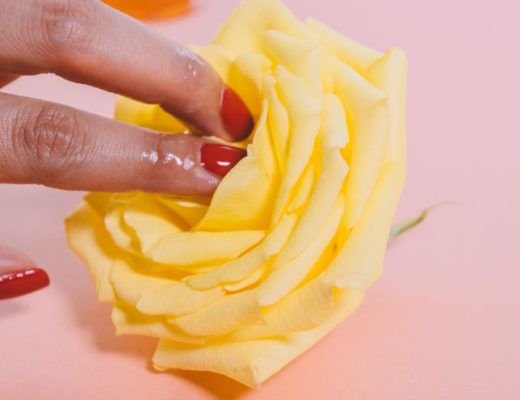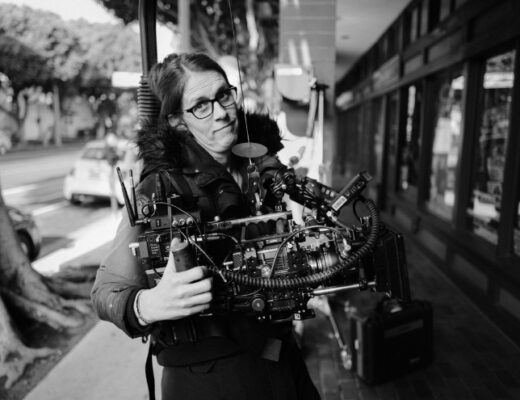By Dr. Laura McGuire
November is an amazing month: Thanksgiving, my birthday, and most importantly, the Trans Day of Remembrance on November 20. Two years ago, I defended my doctoral dissertation on November 20. Since then, so much of my scholarship and advocacy has been around trans inclusion and visibility—and I love finding other activists who are doing the same.
Last week, I had the pleasure of chatting with Fiona Dawson, a dynamic documentarian, bisexual advocate, and speaker at the 25th annual Houston Transgender Unity Banquet on November 4. Her recent work, which centers around trans military members, is especially near and dear to my heart as a child of veterans. The short documentary, Transgender, at War and in Love, was nominated for “Outstanding Short Documentary” at the 37th Annual News & Documentary Emmy Awards, and is now used in education at military bases. It was a great honor to speak with Dawson and witness the unique brand of artistic activism that she brings to the LGBTQ table.
Dr. Laura McGuire: Thank you for agreeing to talk with us! Your work really resonates with a lot of our readers. First, tell me a little about yourself, what identities you connect with, and about your art activism.
Fiona Dawson: I am Fiona Dawson. I am a British native and an American immigrant. I am a white, cisgender, bisexual woman who passionately cares for all human rights. In 2010, I decided to re-direct my career to make media that would help end stigma and discrimination. My main priority right now is changing the way society understands gender, sex, and sexual orientation. I’ve chosen visual storytelling through film and video, as it’s an art that has the capacity to radically touch hearts and change minds.
What was your coming out experience like? Did you find a sense of community in queer spaces?
I was working for the [Houston] HIV/AIDS organization Bering Omega Community Services in 2004 when I initially came out as gay, so already being involved with the LGBTQ community helped facilitate a very positive experience. I felt like I was where I belonged. My parents and siblings were surprised, but completely accepting. They took the attitude of “Fiona will try anything once,” so my biggest family battle was insisting that this was going to be many more times than once. But I knew that time would demonstrate that.
By 2012—when I came out as bisexual and had been living in New York City for a year—it was much harder. I was away from my core group of friends and was very aware of the biphobia I’d been hearing within the community over the years. I myself had held stigma against bi people, so I foresaw the criticism that label was going to send my way. While my friends have ultimately been very accepting of my bisexual identity, I have had challenges with now ex-girlfriends and feel worn down by the bi erasure still in the media.
Many trans folks still experience transphobia, even within our LGBTQ community. Do you think this is similar to biphobia in queer spaces?
Yes, biphobia and transphobia are similar in that their roots are in radicalizing our concept of gender. In recent years, I think the trans community has seen more positive advancements of visibility than bi-identified people, which is great and helping change perceptions. But I’m also energized to keep doing more on the intersection of gender, sex, and sexual orientation to advance the thinking of who we are as people.
What has the response in the military community been to your project?
I’ve only received positive feedback from the military community. The short New York Times film, Transgender, at War and in Love, is used at military installations for education and discussion purposes, and the United States Air Force Academy is eager to screen the full-length feature when it’s finished next year. I’m sure there are some naysayers, but they don’t reach me. I’m excited about collaborating with the military community through 2018 to share the stories of and facilitate dialogue on the inclusion of transgender service members.
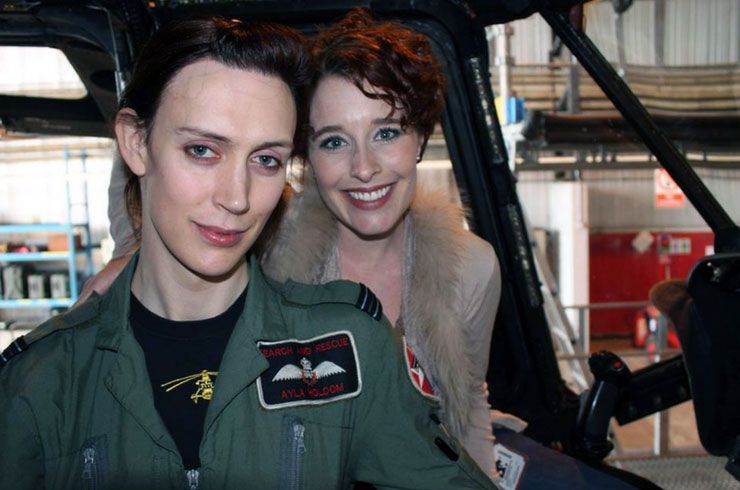
Fiona Dawon’s (r) short documentary, ‘Transgender, at War and in Love,’ was nominated for “Outstanding Short Documentary” at the 37th Annual News & Documentary Emmy Awards.
What can the future of trans inclusion in the military look like? What can activists do to make things better given the current administration?
While Trump is in power, it’s important that we listen, respect, and empower one another. Just this week, a court blocked Trump’s attempts to re-instill the transgender military ban. So, this saga continues—and currently it’s landed in our favor. I firmly believe that no matter how things play out, we have won, but we just don’t know what timeline we’re working on. To make things better, activists can support storytelling projects like ours. When people who don’t think they know a trans person see films like TransMilitary, it changes the way they think. So share our content, follow our distribution in 2018, and if you have the means, financial support is gratefully received.
What advice would you give to young artists who want to combine art and activism?
Learn to become fantastic storytellers. Always have your audience in mind. Keep the faith. One of the traps it’s easy to fall into is producing content that speaks to the choir and satisfies your own way of understanding. When we’re crafting our films, we’re constantly thinking, “What would a Trump voter be engaged to see?” My end goal is to change the way people think, so I can’t be combative. I must be empathetic and find a way for our characters and our audience to sense common ground.
Tell us more about your upcoming appearance at the Houston Transgender Unity Banquet, as well as how you first got involved with the city’s LGBTQ community.
In addition to coming out as gay, I became involved in the Houston LGBTQ community by working for an HIV/AIDS organization and volunteering for the Human Rights Campaign (HRC). Supporting and learning how to be a trans ally was always very important to me. My sexual orientation very rarely inflicted injustice on me personally, but ensuring that I was doing my bit for those whose voices were less heard was a decision I never consciously made. The Transgender Unity Banquet is extremely important to me, as it’s an annual celebration hosted by and for the trans community. I always felt it was a generous gesture for the trans community to extend the invitation to cis allies, so to now be invited back to speak at the event is a compliment that, ironically, leaves me somewhat speechless.
Any closing thoughts for our readers who want to get involved with your work?
Look at the ways you can take action, including joining our mailing list here. You can also watch and share the short film Transgender, at War and in Love here. Plus, find every opportunity to support #OpenTransService. Thank you!
Catch Fiona Dawson at the 25th annual Houston Transgender Unity Banquet on Saturday, November 4 at the Houston Marriott North. For tickets, visit tfahouston.com/2017-unity-banquet-tickets.


